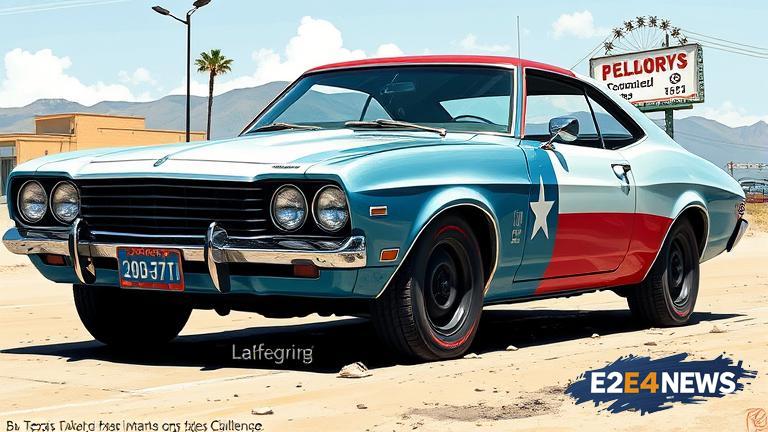The state of Texas has come forward to challenge California’s recent crackdown on gas-powered cars, with Governor Greg Abbott warning that the Golden State cannot dictate the trends of the US auto market. This move is seen as a significant development in the ongoing debate about the future of the automotive industry in the United States. California, known for its stringent environmental regulations, had announced plans to ban the sale of new gas-powered cars by 2035, citing concerns over climate change and air pollution. However, Texas and other states have expressed concerns that such a ban would have far-reaching consequences for the auto industry, including job losses and economic disruption. The Texas challenge is not just about the gas car ban, but also about the broader issue of states’ rights and the role of the federal government in regulating the auto industry. Governor Abbott has argued that California’s ban would be an overreach of the state’s authority, and that the decision to transition to electric vehicles should be left to the market and individual consumers. The US auto market is a complex and highly competitive industry, with multiple stakeholders and interests at play. The gas car ban has been welcomed by environmental groups and electric vehicle manufacturers, who see it as a crucial step towards reducing greenhouse gas emissions and promoting sustainable transportation. However, others have raised concerns about the feasibility of such a ban, citing issues such as the lack of charging infrastructure, the high cost of electric vehicles, and the potential impact on low-income households. The Texas challenge has also sparked a debate about the role of government in regulating the auto industry, with some arguing that the market should be left to dictate the pace of transition to electric vehicles. Others have pointed out that government regulations and incentives have played a crucial role in driving innovation and investment in the auto industry, and that a coordinated approach is needed to address the challenges posed by climate change. The US auto market is a significant contributor to the country’s economy, with millions of jobs and billions of dollars in revenue at stake. The gas car ban has also raised questions about the future of the oil and gas industry, which is a major player in the US economy. As the debate over the gas car ban continues, it is clear that the outcome will have far-reaching consequences for the auto industry, the environment, and the economy as a whole. The challenge by Texas is just the beginning of what is likely to be a long and complex process, with multiple stakeholders and interests at play. The US government has a crucial role to play in regulating the auto industry and promoting sustainable transportation, but it must also balance the needs of different states and stakeholders. The gas car ban is a highly polarizing issue, with some seeing it as a necessary step towards reducing greenhouse gas emissions, while others view it as an overreach of government authority. As the US auto market continues to evolve, it is clear that the transition to electric vehicles will be a complex and challenging process, requiring coordination and cooperation between government, industry, and consumers. The Texas challenge is a significant development in this process, and its outcome will be closely watched by stakeholders across the country. The US auto market is at a crossroads, with the future of the industry hanging in the balance. The gas car ban is just one aspect of a broader debate about the future of transportation and the role of government in regulating the industry. As the debate continues, it is clear that the outcome will have significant consequences for the environment, the economy, and the auto industry as a whole. The challenge by Texas is a reminder that the US auto market is a complex and highly competitive industry, with multiple stakeholders and interests at play. The gas car ban is a highly contentious issue, with some seeing it as a necessary step towards reducing greenhouse gas emissions, while others view it as an overreach of government authority. The US government has a crucial role to play in regulating the auto industry and promoting sustainable transportation, but it must also balance the needs of different states and stakeholders. The outcome of the Texas challenge will be closely watched by stakeholders across the country, and will have significant implications for the future of the US auto market.
